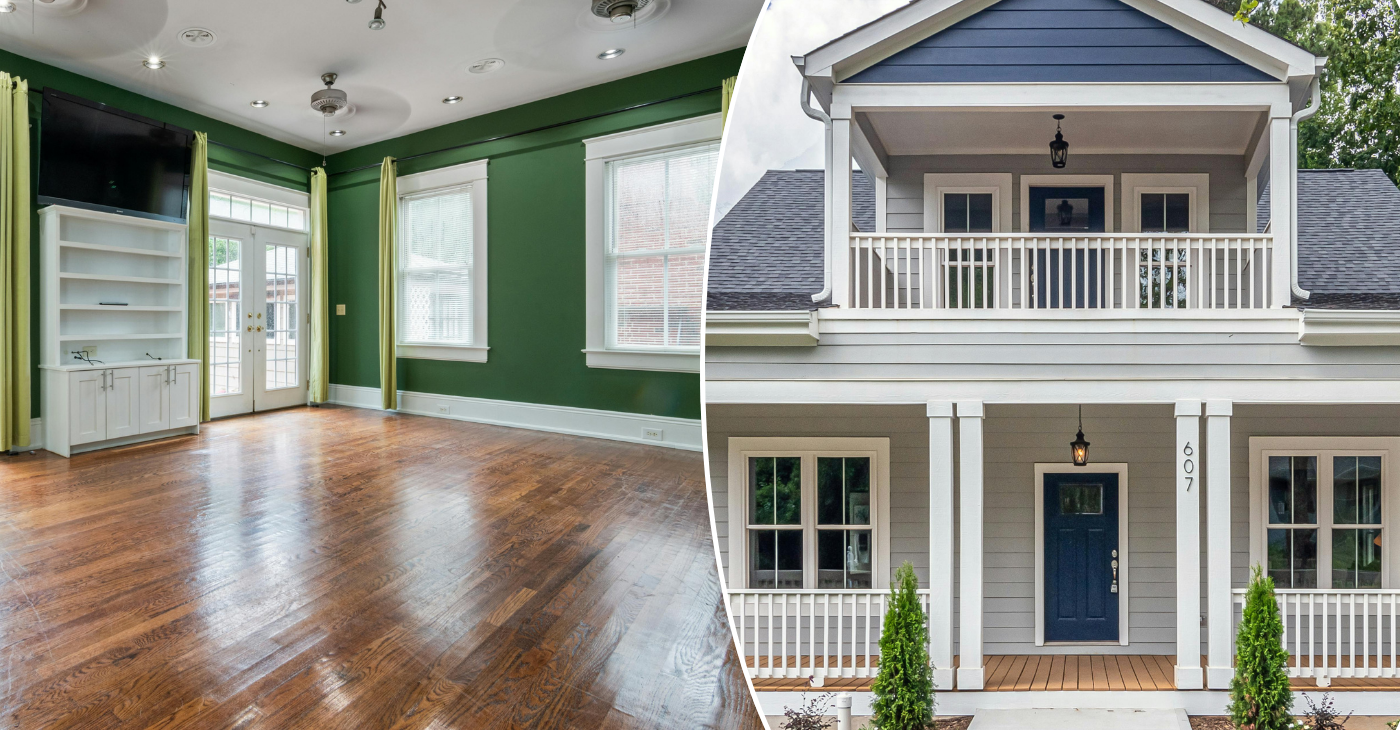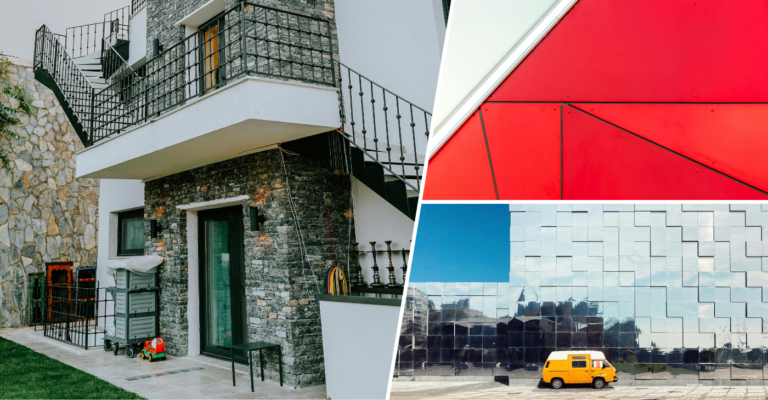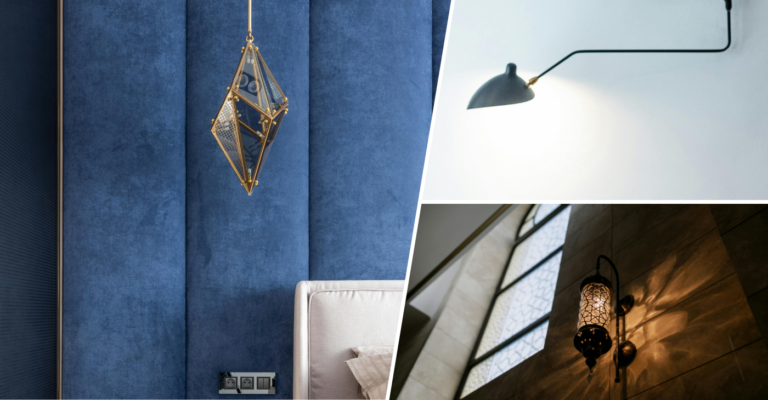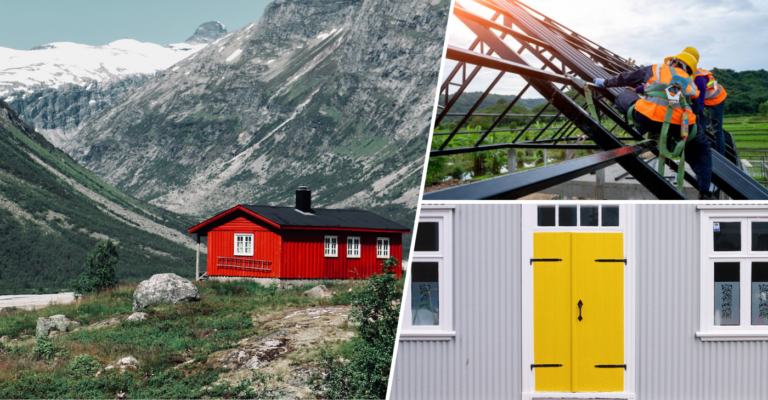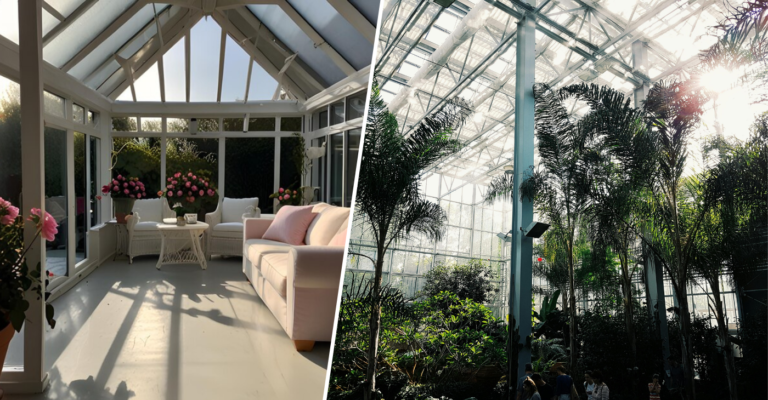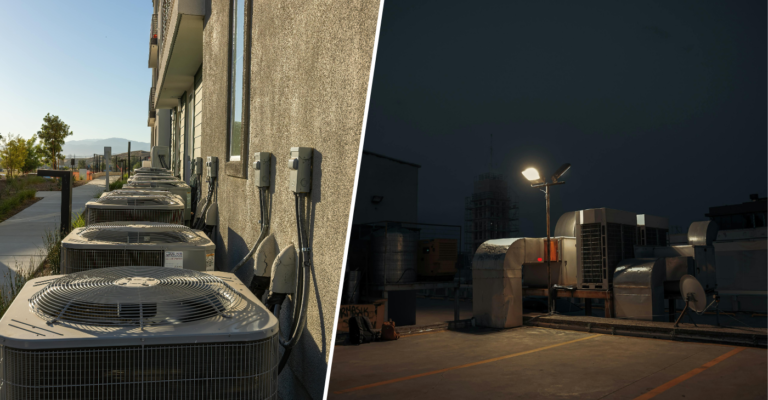Guide: Cost of double glazing a 3 bed house in the UK
The cost of double glazing a 3 bed house in the UK is a worthwhile investment for homeowners aiming to boost energy efficiency, comfort, and home value. With two panes of glass and an insulated gap, double glazing windows keep warmth in, lower energy bills, and reduce noise from outside. There are various options for frame materials, double glazing units, and energy-saving features to suit different homes and budgets. This guide will cover the types of double glazing, costs, and tips on finding a reputable installer. Whether you want to save on energy or improve insulation, understanding these details can help you make the right choice.
What is double glazing?
Double glazed windows use two panes of glass with a sealed gap between them, filled with air or inert gas like argon. This design keeps indoor spaces warmer by reducing heat loss through the windows. The sealed gap, or interspace, acts as a barrier that helps keep the cold out and the warmth in, lowering energy bills and improving indoor comfort.
Filling the gap with gases like argon makes double glazing even more effective, as these gases slow down heat transfer. This also improves the window’s U-value, which measures insulation and lower values mean better insulation.
Double glazing also helps reduce outside noise by up to 60%, a big plus for homes near busy streets, airports, or train lines. This extra layer of glass also adds security, as it makes the window harder to break. Laminated or toughened glass options can further increase impact resistance, which is useful in both homes and commercial buildings.
With its energy-saving and noise-reducing benefits, double glazing is an essential part of modern construction. It helps meet energy standards and adds security, making it a wise choice for any property.
Factors affecting the cost of double glazing
The cost of double glazing a 3 bed house in the UK can vary greatly depending on factors like frame material, glass type, and the number of windows. Here’s a quick overview:
Window quantity and size
The number and size of windows directly impact costs. Larger or custom double glazed units require more material and sometimes special manufacturing. Homes with more windows or large glass areas, like double glazed sash windows or floor-to-ceiling panels, will see higher costs.
Frame material choice
Frame material also affects pricing. uPVC frames are the most affordable, offering durability with low maintenance. Timber frames increase the cost of double glazing a 3 bed house UK, adding a classic look and durability. Aluminium frames, often chosen for modern designs, give a sleek finish but also raise the cost of double glazing due to their strength and unique style.
Glass type and glazing enhancements
Different double glazing window options influence costs. Low-E (Low-Emissivity) glass improves energy efficiency but is pricier. Acoustic or laminated glass, ideal for noise reduction, adds to the cost. Specialized glass like toughened glass or frosted options also increase the price but offer unique benefits.
Installation complexity
Installation difficulty affects labour costs. High-rise buildings or difficult access areas may require scaffolding, special tools, and extended timelines, increasing fees. Complex window shapes, like bay or bow windows, need precision and add to labour costs.
Spacer bars and glazing unit features
Spacer bars, which separate glass panes, impact costs too. Warm-edge spacers, made from low-conductivity materials, are more efficient but costlier than standard aluminum. Thicker glazing units and gases like argon or krypton improve insulation but add to expenses.
Additional finishes and coatings
Extra finishes, like self-cleaning or anti-glare coatings, enhance functionality but come at an added cost. Decorative glazing elements, like Georgian bars or stained glass, also require extra work, raising both material and labour expenses.
Average cost of double and triple glazing for a 3 bed house in the UK
The cost of double glazing compared to triple glazing is influenced by the distinct performance characteristics and materials involved in each option. While double glazing consists of two panes of glass separated by a gas-filled spacer, triple glazing adds an additional pane, enhancing thermal and acoustic insulation but at a higher price point. Triple glazed windows are generally recommended in colder climates or where maximum energy efficiency is desired.
On average, the cost of double glazing a 3 bed house in the UK ranges between £5,000 and £7,000. Upgrading to triple glazing increases this by approximately 30-40%, with costs between £7,500 and £10,000 for the same setup. This variance is due to the additional glass pane and gas-filled spacer, as well as more robust frames to support the weight of triple glazed windows.
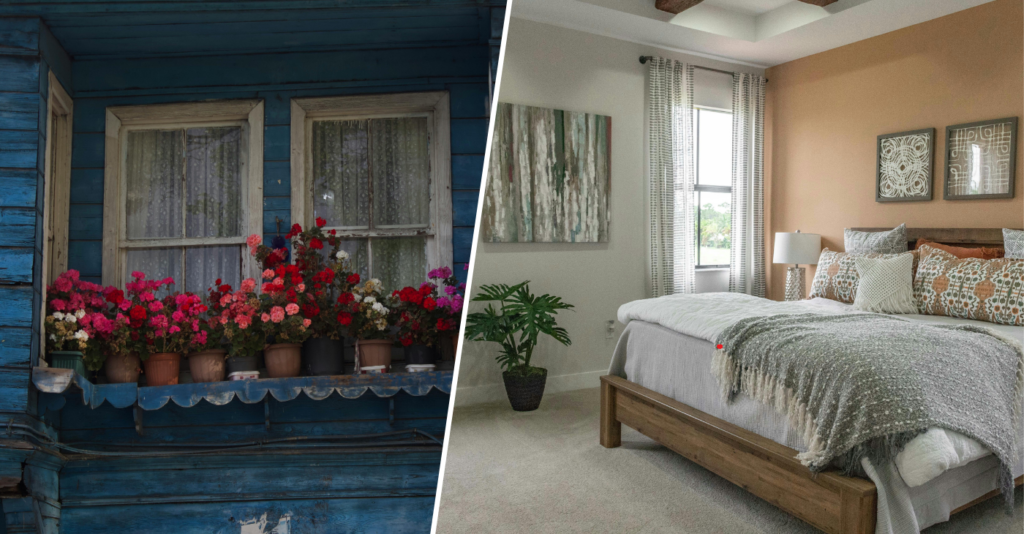
Different types of double glazing and their costs
In double glazing, frame materials impact cost and performance. Each type uPVC, aluminium, and timber offers unique benefits for various projects. Here’s a quick breakdown:
- uPVC frames
uPVC frames are affordable, durable, and low maintenance. They provide good insulation and meet energy ratings at a budget-friendly price. Costs range from £300 to £800 per window, depending on size and features. Although uPVC doesn’t look like timber, it comes in a range of colors and finishes to match most styles. - Aluminium frames
Aluminium frames are strong, slim, and have a modern look. They’re ideal for large glazed areas and minimalist designs. Aluminium is also corrosion-resistant, making it durable in coastal areas. Prices range from £400 to £1,000 per window. A thermal break improves insulation, though it slightly raises the cost. - Timber frames
Timber frames offer a classic look, often preferred for period homes and high-end projects. They insulate well and are long-lasting with regular maintenance. Timber frames cost between £500 and £1,500 per window, based on wood type and custom details. Hardwood frames are pricier but last longer and look premium. Timber is chosen for its charm and sustainability, though it needs more care.
Is it worth paying more for energy-efficient glazing?
For many, the cost of double glazing a 3 bed house in the UK is worthwhile for energy savings and comfort. Investing in energy-efficient glazing, like A-rated or triple glazing, keeps heat in during winter and blocks it in summer, reducing energy bills.
Switching from single to A-rated double glazed units can save about £165 a year on heating. Although the initial double glazed cost is higher, it pays off over time through lower bills and reduced carbon footprint.
Energy-efficient glazing often includes Low-E coatings and argon-filled spacers that reflect heat back inside. This lowers U-values, meaning less heat escapes, which improves efficiency. Homes with energy-efficient glazing also tend to have higher property value, as buyers look for ways to cut energy costs and reduce impact on the environment.
Additional costs to consider
When planning for double glazing, it’s important to budget for extra costs beyond just the windows. Here’s a look at some additional expenses:
Installation fees – Professional installation prevents issues like air leaks and condensation in double glazing. Fees are around £500 per day for two installers.
Scaffolding and access equipment – For upper floors or difficult access, scaffolding may be needed, typically costing £100 per day.
Custom features and finishes – Decorative double glazing elements like Georgian bars or secondary glazing add style and cost. Special coatings like anti-glare also add to the expense.
Can you get double glazing grants in the UK?
Yes, homeowners in the UK can get grants for double glazing through various energy-saving schemes. Programs like the Energy Company Obligation (ECO4) offer support for energy-efficient improvements, including double glazing, to reduce energy use and cut carbon emissions. ECO4 specifically helps reduce the double glazed cost for eligible homeowners that meet certain income or property criteria, making upgrades more affordable for those who qualify.
Green Match is another resource that connects homeowners with available grants. It provides information on government-backed funding, local incentives, and regional programs for energy-saving upgrades. These grants are especially helpful for low-income households and landlords looking to improve energy efficiency without bearing the full cost.
How long does double glazing last?
The lifespan of a double glazed unit depends on material quality, installation precision, and regular maintenance. Well-installed double glazed windows generally last between 20 to 25 years, while high-quality double glazing windows can sometimes reach up to 35 years with proper care.
Environmental factors also affect durability. UV exposure, temperature changes, and humidity can wear down the seals of double glazed units, leading to issues like condensation between the panes. Minor repairs, such as resealing, can help prevent these problems and extend the life of the windows.
Investing in quality materials and professional installation is essential for maximum longevity. Expert installers ensure double glazing replacement glass and frames are tightly sealed, avoiding air leaks and thermal bridging. Routine maintenance, along with occasional double glazed window repairs, helps keep the double glazed window units efficient and effective over time. This care ensures that windows double glazed continue to offer strong insulation, noise reduction, and security for many years.
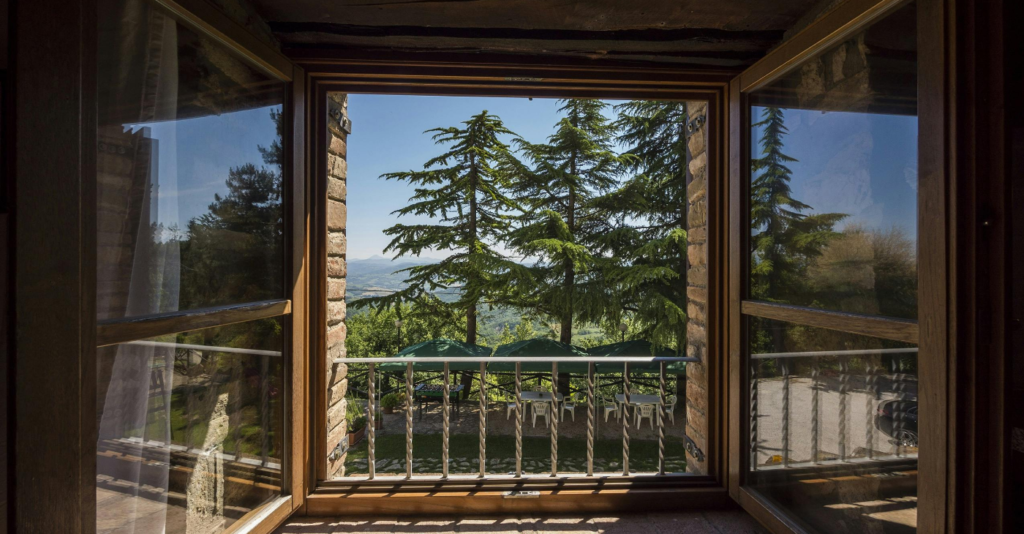
DIY vs. professional installation, which is better?
While DIY double glazing installation might save on labour costs, it comes with risks. Professional installation ensures proper fitting according to UK building regulations, covering energy efficiency and safety standards. Certified installers use techniques to avoid issues like condensation inside double glazing, which can affect performance and require costly repairs.
DIY may be cheaper upfront, but it lacks the skills, tools, and sealing expertise of a professional job. Certified installers are often registered with FENSA or CERTASS, providing certification that proves compliance with regulations—this is important if you plan to sell the property. Professional installation also usually includes a warranty, offering peace of mind and long-term reliability. For most homeowners, a professional installation is the best choice for quality and efficiency.
How to find a reputable double glazing installer
Finding the right double glazing installer is crucial for a quality result. Here’s how to go about it:
- Research
Start by reading reviews on trusted sites like Checkatrade and Trustpilot. Look for feedback on the installer’s reliability, professionalism, and quality of work. Pay attention to projects similar to yours to see how they handled them. - Certifications
Choose an installer certified by FENSA or CERTASS. These certifications mean the installer meets building regulations for energy efficiency and safety. Certified installers can provide certification when the job is done, which is helpful if you plan to sell the property. - Get multiple quotes
Get at least three quotes to compare prices, services, and warranties. Each quote should give a clear breakdown of costs for materials, labour, and any extra features. Be wary of very low quotes, as they may mean poor quality materials or shortcuts. - Warranty and insurance
Reliable installers offer warranties covering both the windows and the installation work. Ask if they provide an insurance-backed guarantee, which protects you if the installer goes out of business. A solid warranty gives peace of mind and protects your investment.
What are the long-term savings of double glazing?
Double glazing saves money over time, not just on energy bills. Its insulation keeps heat in, reducing energy costs, especially in winter. These savings add up and help cover the initial cost of installation.
Double glazing can also boost your property’s value. Homes with energy-efficient features are in demand, and double glazing is a strong selling point. Durable frames like uPVC or aluminium need less maintenance, cutting down on future upkeep costs. Overall, double glazing is a smart investment that adds both comfort and value to your home.
Common mistakes to avoid when budgeting for double glazing
Planning carefully for double glazing can save you from common budgeting mistakes. Here’s what to watch out for:
- Overlooking additional costs
Many people only budget for the windows, forgetting extra expenses. Installation alone can range from £500 to £1,000 per day, depending on the project’s complexity. If you’re working on upper floors, scaffolding might be needed, which can cost £100 or more per day. Don’t forget other costs like permits or disposal fees for old windows, they can add up fast. - Choosing low-quality materials
Going for cheaper materials may seem like a way to save money, but it can end up costing more. Low-quality frames or glass often mean poor insulation and quicker wear, leading to frequent repairs or replacements. Invest in quality materials like uPVC or aluminium with Low-E glass or argon-filled spacers for better insulation and durability. These choices improve the U-value, helping you save on energy bills over time. - Not checking installer credentials
Hiring an installer without checking their credentials can be risky. Look for certifications from FENSA or CERTASS to ensure they follow building regulations. Certified installers also provide certification, which is useful for property resale. They’re also more likely to offer a warranty, giving you peace of mind for both the window units and installation work. - Skipping energy-efficient options
Some people avoid energy-efficient upgrades to save on upfront costs. However, A-rated or higher double glazing reduces energy bills by boosting insulation. Options like Low-E coatings or triple glazing are especially beneficial for colder climates or noisy areas. They prevent thermal bridging and add value to your home over time.
Cost implications of addressing condensation in double glazing
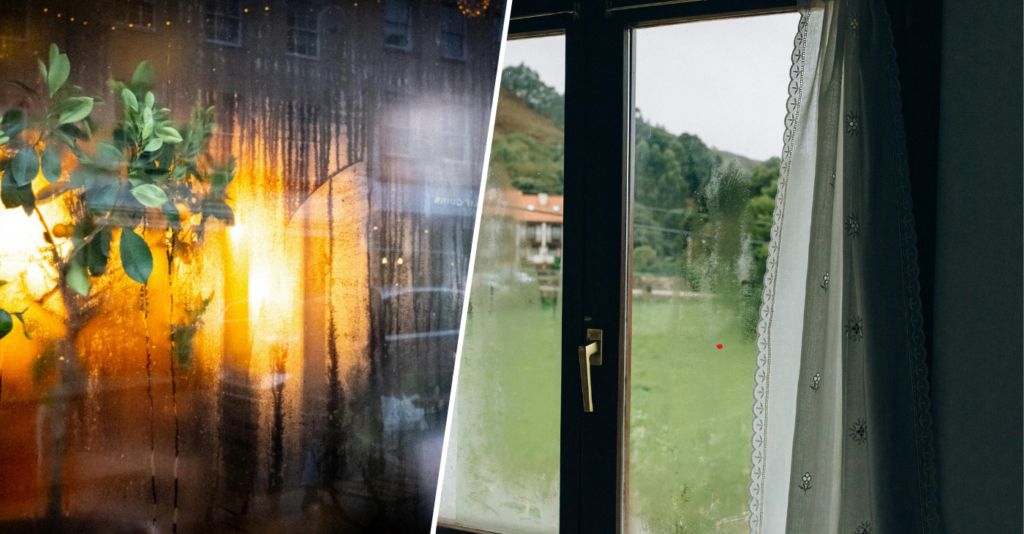
Addressing condensation in double glazing can vary in cost depending on the severity of the issue and the solution needed. If only the seal is damaged, it might be possible to repair it without a full replacement. Resealing usually costs around £70 to £120 per window, based on size.
When condensation inside double glazing is severe and the seal cannot be fixed, replacing the double-glazed unit may be required. Replacement costs range from £50 for small panes to £150 for extra-large ones. If the frame is also compromised, a full window replacement could be necessary, costing from £150 for small windows to £600 for larger ones.
Additional costs include labour, which generally ranges from £500 to £1,000 per day, and potentially scaffolding for upper floors, adding around £100 per day. Disposal of old windows may add £50 to £100 per window. Investing in quality materials and professional installation helps prevent condensation in double glazed windows and can reduce future repair costs by extending their lifespan.
Conclusion
The cost of double glazing a 3 bed house in the UK brings great long-term value. It saves energy, reduces noise, and adds value to your home, all while lowering future maintenance costs. Though the initial double glazing cost depends on materials, glass type, and installation, the overall value makes it worthwhile. Quality double glazing units ensure comfort, efficiency, and a solid investment in your home’s future. By choosing quality materials and a trusted installer, you can enjoy the comfort and efficiency of double glazing for years, making it a solid investment for your property.

